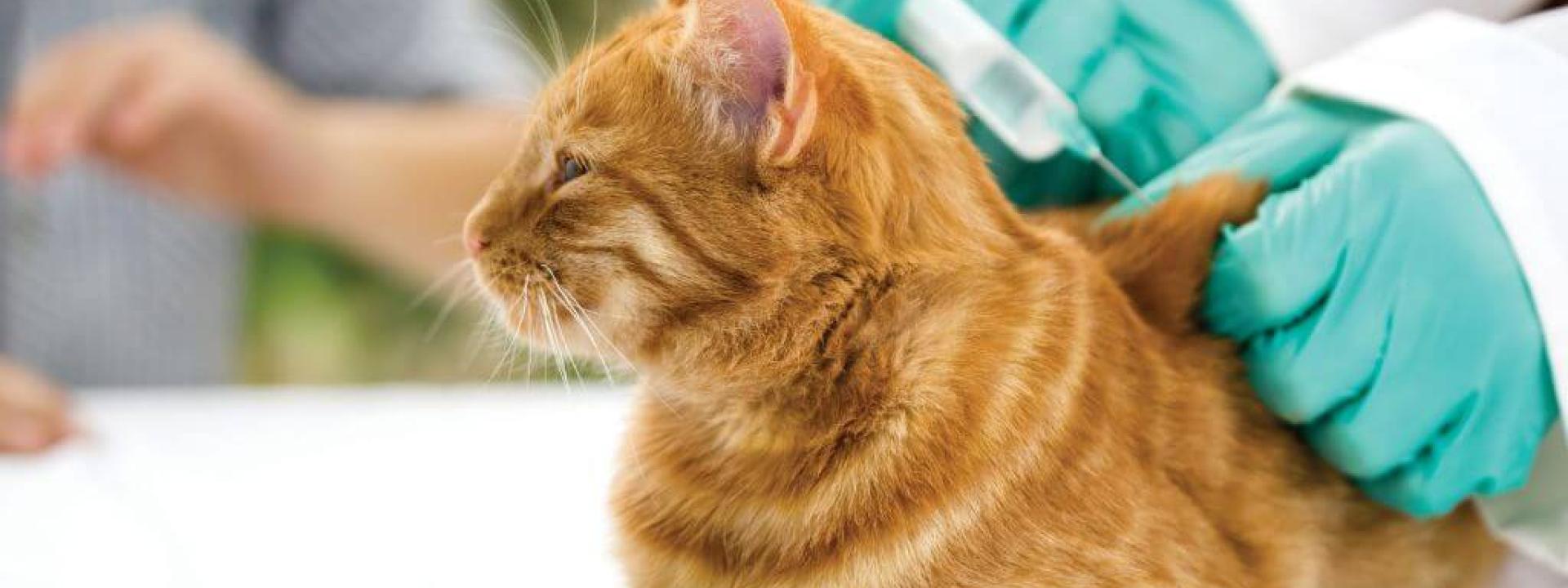Keeping your feline friend healthy means keeping them up-to-date on their vaccinations. Today's vaccines are safe and effective at safeguarding companion animals against a wide range of illnesses. Side effects and complications are rare, and pets are much more likely to get sick if they don't receive the proper vaccines.
As veterinarians, we would like to help you better understand the core and non-core vaccines and which ones your cat needs. Read on to find the answers you need!
What Are Core Vaccines vs. Non-Core Vaccines?
All pet vaccinations fall into one of two categories: core and non-core. We strongly recommend certain core vaccines for all cats, regardless of age, breed, etc. However, we only recommend non-core vaccines based on a patient's lifestyle and medical history. Some cats need several non-core vaccines, while others don't need any. As your cat's veterinarian, we will help you determine which ones your feline friend needs.
What Are the Core Vaccines for Cats?
As the core vaccines are what we as veterinarians highly suggest for your cat to keep them in optimal health, you might wonder what these are.
The core vaccines for cats and kittens include:
- Feline panleukopenia virus
- Rabies
- Feline rhinotracheitis
- Feline calicivirus
All cats should receive a rabies shot, which most states require by law, and the FVRCP combination shot. Did you know that cats get rabies more than any other domestic animal? Rabies is a deadly viral infection. It attacks the nervous system and spreads between animals and people.
Also known as feline distemper, the feline panleukopenia virus is highly contagious and causes an illness similar to parvovirus in dogs. Severe infections affect a cat's immune, gastrointestinal, and nervous systems.
Feline rhinotracheitis is also known as herpesvirus infection and feline viral rhinotracheitis. It affects cats of all ages and spreads via direct contact with infected cats' saliva and nose/eye discharge.
Lastly, feline calicivirus causes upper respiratory infections and oral diseases in cats. Like feline rhinotracheitis, it spreads via saliva and nose/eye discharge. However, direct contact isn't necessary, which makes it highly contagious.
What Are the Non-Core Vaccines for Cats?
As mentioned above, we recommend non-core vaccines based on health and lifestyle factors. If your cat spends all of their time indoors, for example, they need fewer vaccines than one who goes outside. We may also recommend fewer non-core vaccines for senior cats and those with health problems. During your cat's appointment, we will ask you several questions to assess their needs. We encourage you to provide honest answers, so your cat receives adequate protection.
Non-core vaccines for kittens and adult cats include:
- Feline immunodeficiency, also known as Feline AIDS (FIV)
- Feline infectious peritonitis (FIP)
- Feline leukemia virus (FeLV)
- Chlamydia felis
Feline immunodeficiency virus attacks the immune system, making cats more susceptible to infections and other illnesses. It typically spreads through biting, and male outdoor cats are the most frequently infected.
Cats with the feline leukemia virus exhibit a wide range of symptoms. The virus also commonly causes cancer because it weakens the immune system. Most often, cats transmit this virus to each other through close contact.
A coronavirus that only affects cats causes feline infectious peritonitis. It can infect many organs and cause symptoms similar to many other conditions, making diagnosis extremely difficult. The virus spreads most often through contact with feces.
Chlamydia felis causes chlamydiosis, a chronic bacterial upper respiratory infection, in cats. It also affects the gastrointestinal system, reproductive system, and eyes. It is highly contagious and prevalent among cats living in crowded conditions.
How Often Do Kittens and Cats Need Shots?
Since cats don't actually have nine lives, protecting them with vaccines is crucial. Generally, kittens should receive their first shots when they're around six to eight weeks old. We administer the first shots in a series over the course of two to three months. You must complete the entire series to ensure adequate protection. After finishing the initial series, your cat will need boosters once they are a year old.
Beyond the first year, your feline friend will need boosters every one or three years, depending on how long a particular vaccine remains effective. Keeping up with boosters is the only way to ensure lifelong protection. We are here to help you get your cat on an effective and easy-to-manage vaccination schedule.
Closing Thoughts
No vaccine is 100 percent effective. However, vaccinating your cat reduces their chance of contracting a deadly illness or infection. Plus, vaccinating your cat protects other cats by minimizing disease transmission. Because every cat has unique needs, meeting with a veterinarian to develop a vaccine schedule is crucial. As your feline friend's veterinarian, we will consider several factors when determining which vaccines best suit their needs and how often they need boosters. Whether you have a cat or kitten that has never received vaccines or one with an unknown vaccination history, we're here to help you get them on the road to good health. Contact us today to schedule an appointment.

